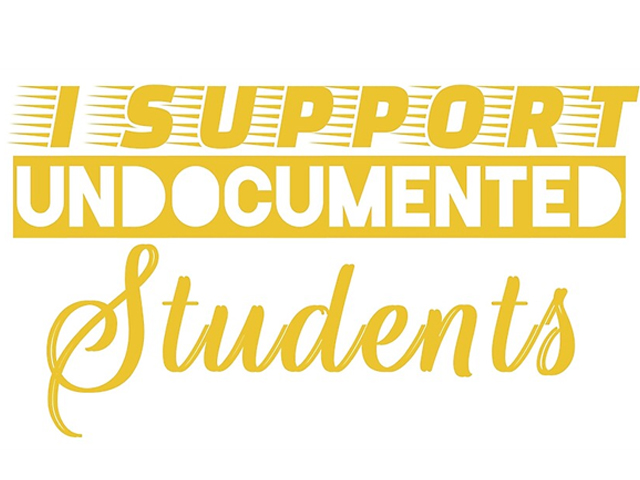
When you are pursuing post-secondary education after graduating from high school, visiting college campuses is often part of the equation. This is a chance to see what the campus offers, meet other students, meet professors, get a feel for the cultural vibe of the school and potentially sit in on a class.
You can gain the most from your college visit by being prepared with a list of questions to help maximize your experience. The answers you get can help you narrow down your options. Check out these top ten questions to consider when you are planning a campus visit.
1) What kinds of career services are provided on campus?
It is never too early to think about life after college and your future career, even if you are just starting your campus life. Ask about how many career fairs occur on campus and when they happen. Find out which companies arrive to recruit students. Discovering early if there are potential places you would like to work is a great way to be prepared.
You can additionally inquire about what types of support are available after graduation. Some schools provide lifetime career counseling and this may be more beneficial and attractive compared to one that requires you to pay a fee to access alumni online job opportunities.
2) What are the freshman class numbers?
Understanding how many students will be attending freshman year can help you find a group that fits your comfort level. Certain students may prefer a school that works with smaller numbers in a more intimate setting. Other students may be hoping to be part of a giant group consisting of thousands of fellow students. Determine if anxiety or large groups cause you any issues and take that into consideration.
You can gain insight into whether a school is growing smaller or larger by looking at its enrollment trends. If you desire to attend a smaller school but notice that their class sizes are continuously expanding, you may want to reconsider your options. Thankfully, there are numerous campuses out there and finding your best fit will be easier after you discover all these important details.
3) Can you please describe the top qualities that you are looking for in potential students?
While there may be a standard answer that is delivered in response to this question, it doesn't always cover all the bases. Feel free to play detective on your own as well by asking different students or someone in the office what kind of qualities differentiate students from this school.
If you have a proposed major, you can also speak with the undergraduate major advisor for more information as well. Getting different perspectives from various people can help you understand what the ideal profile looks like. This can give you some opportunities to make some changes and updates to your own profile or inspire you to try a new approach.
4) What kinds of distinctive programs, learning communities and honors courses are available?
There are typically a variety of learning tools, unique programs and exciting opportunities offered by many schools that expand beyond traditional classes. Discover if your post-secondary school has internships, study abroad options, independent study, honors programs, or any seminars coming up. Determine what extra opportunities make each university unique from the rest.
If you are focused on studying abroad, find out which countries are potential players. If a summer internship piques your interest, discover which companies work alongside the school. Speak with mentors and guidance counselors to find out which options are available by making appointments and asking questions.
5) On average, how much is the average financial aid package given to students?
When you are planning your finances, it is essential to evaluate what your complete cost of attendance will be and how much financial aid you may receive. Ask if the school guarantees enough financial aid to meet your school needs when you are asking about the size of the average financial aid amount.
Find out how often students obtain federal loans versus grants. Grants are the best option since they do not require any repayment. This is an excellent opportunity to explore if you are trying to minimize your debt.
6) How many students participate in campus groups or clubs?
A great way to meet people and take an active break from studying is by joining campus clubs or groups. This is an ideal way to develop school connections and hang out with others who have similar interests. Fostering school culture and a sense of community can help students stay motivated and inspired. This makes it easier to establish a network.
Check out the various clubs, organizations, and groups available at the different schools. See if there are certain groups that pique your interests and find out how many members they generally have. Ask if the students work with the community? asking these types of questions can help you discover how engaged students on-campus are and if you will be a good fit.
7) What are the different kinds of work-study opportunities offered?
Are you interested in applying for the Federal Work-Study program? You will have to fill out your FAFSA in advance. This offers you a chance to earn money to cover some of your college costs.
The program quality can vary from each school. There may be basic positions offered by certain colleges such as computer lab technicians or working as a library assistant, while others may have opportunities with established organizations that offer student placement. If you understand what you prefer to major in, there may be certain work-study options out there that can deliver the relevant experience in your area of expertise. If you are interested in nursing or pre-med, look for a college that offers first internship picks, work-study opportunities at healthcare facilities, or local training.
8) What is the percentage of returning freshman students for the following year? How many freshman students graduate?
There will be fellow freshmen who begin strong in the fall and then peter out by graduation or even at the end of the first or second semester. Note if the school you are interested in has a high retention rate. This will directly showcase if there is adequate support on campus and how strong the community culture is.
These are vital factors that can make the difference between students dropping out or students being able to successfully complete their studies.
If there is a high freshmen turnover, it can be due to various factors. Students can miss graduation due to exorbitant costs or switching to a different campus closer to home. They may leave because they become interested in a different career path, or as the result of administrative issues, lousy professors, or campus safety concerns.
Speaking with upperclassmen can shed some light on what makes freshmen thrive or leave.
9) For students who graduate in 4 years, what is their average student loan debt?
If you are considering utilizing student loans to pay for a portion or all of your college expenses, you will definitely want to gather this information ahead of time. You may be required to take out additional private loans to cover your college expenses depending on how much financial aid you are eligible for.
Having some insight about how much debt on average students takes on upon graduation can give you an idea of what your student loan amounts may be.
10) Which courses or how many are taught by a teaching assistant vs. a professor?
At larger campuses, it is not unnatural to have introductory classes delivered by teaching assistants instead of professors. How much does this matter? It may matter more than you realize.
A professor with experience often discusses topics differently compared to teaching assistants. They typically have more subject knowledge and familiarity with the subject matter. Obviously, varying experience levels and different teaching styles can influence how much you learn in that class. It is vital to figure out what type of learner you are and which learning environment best suits your needs.











